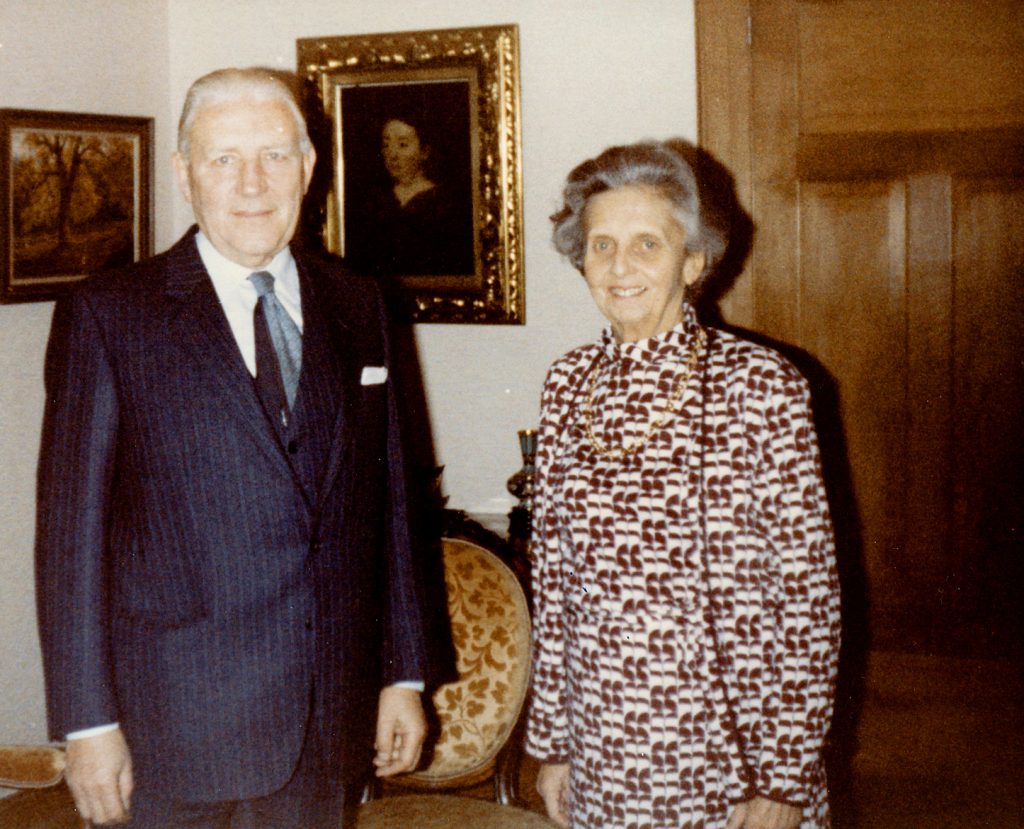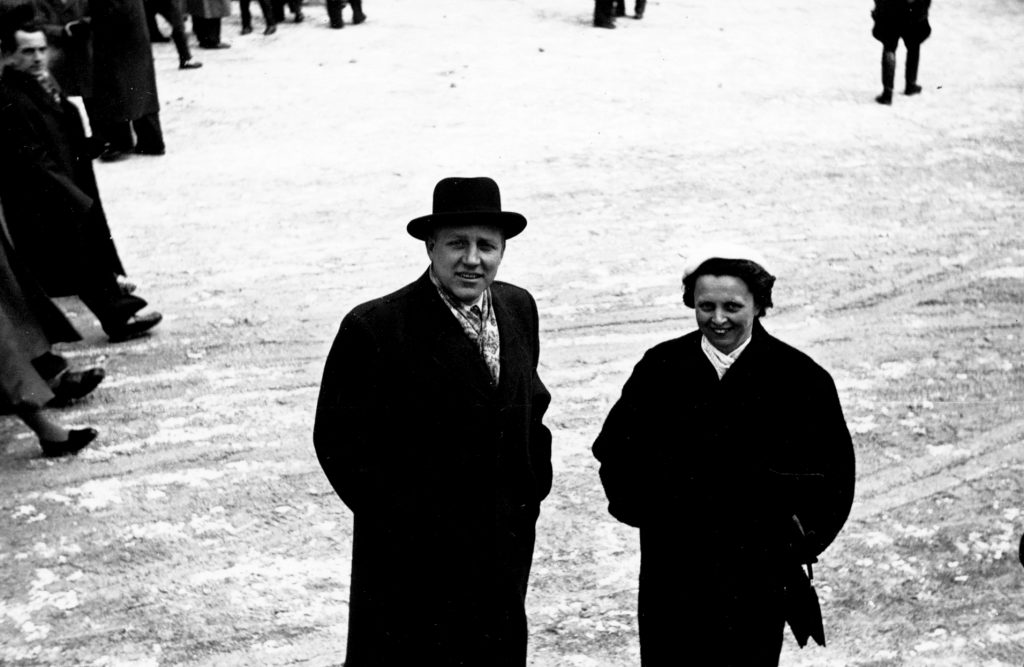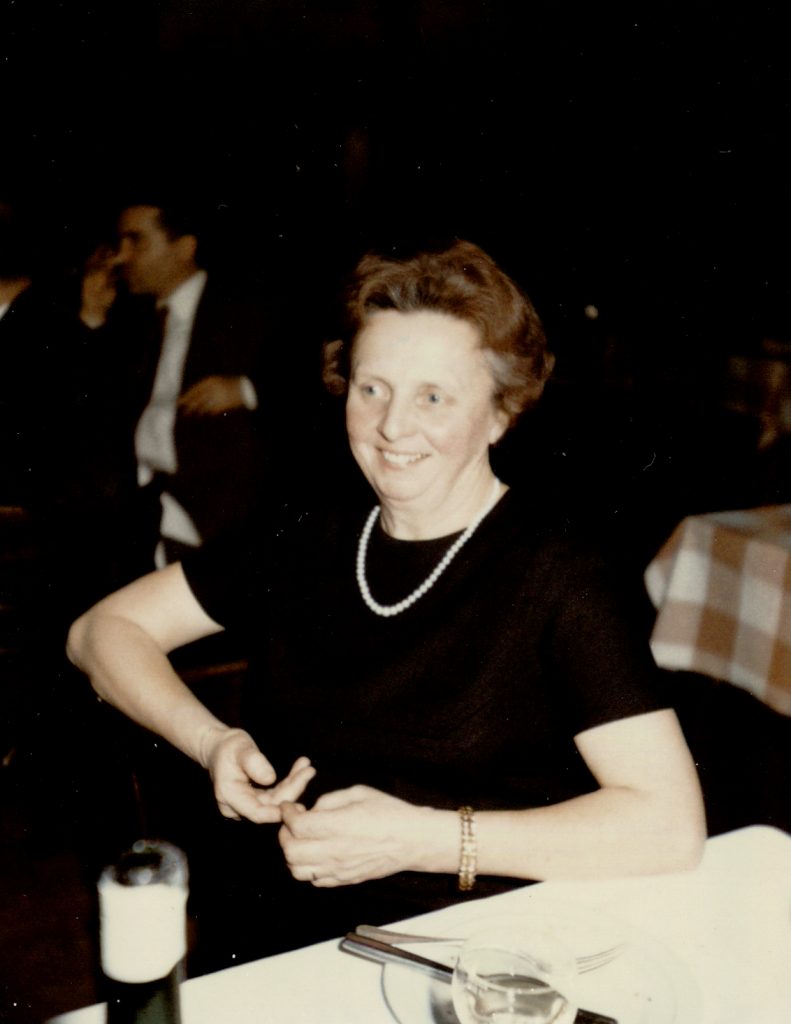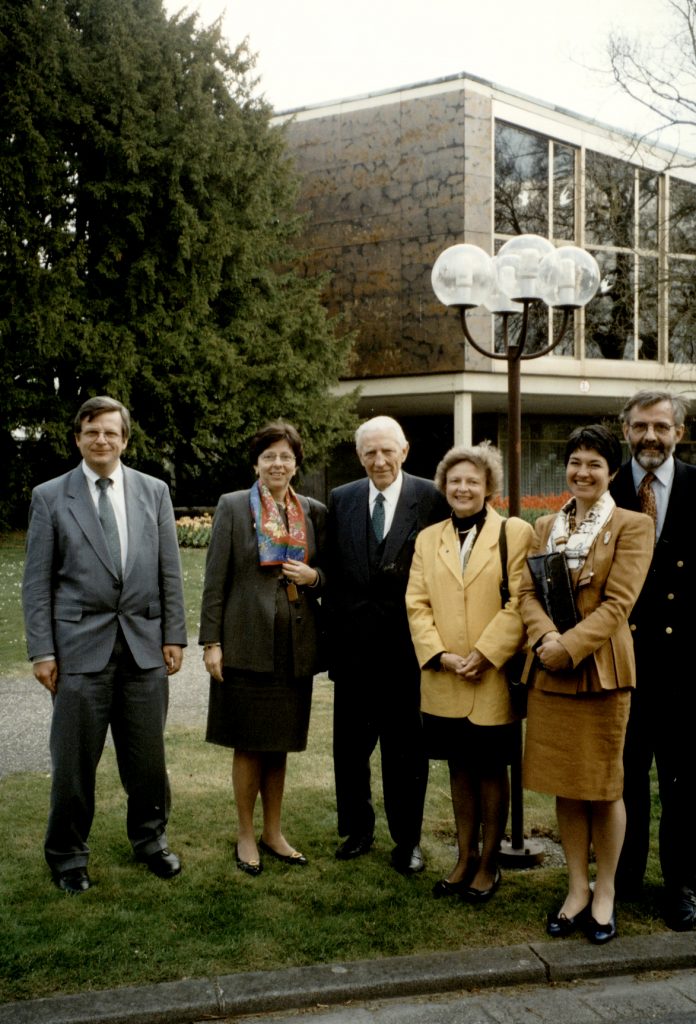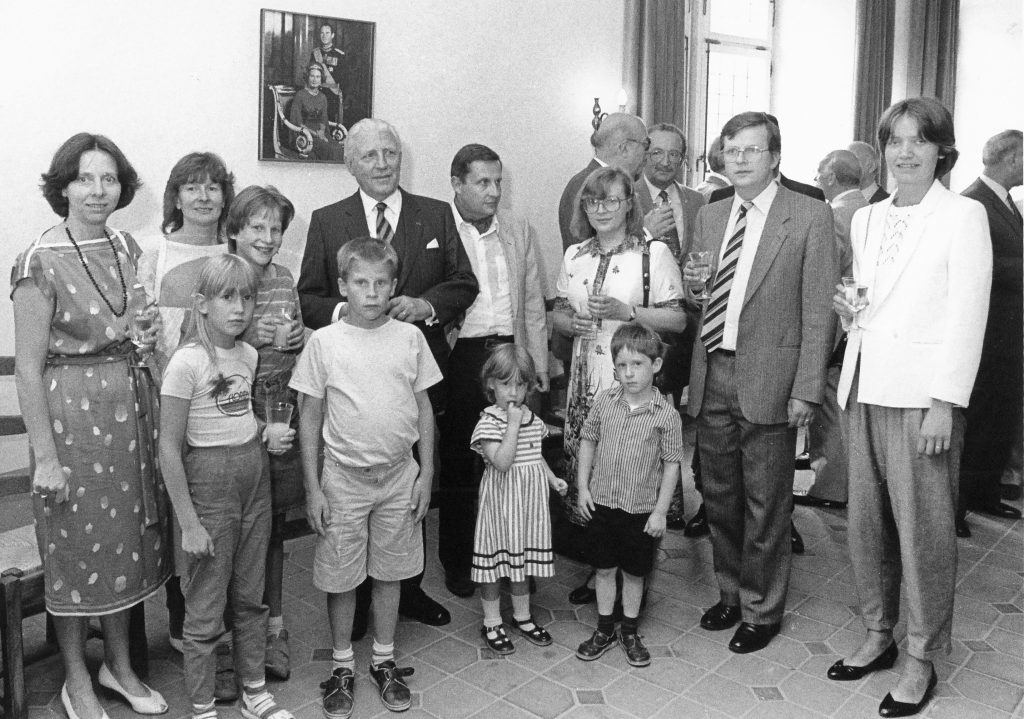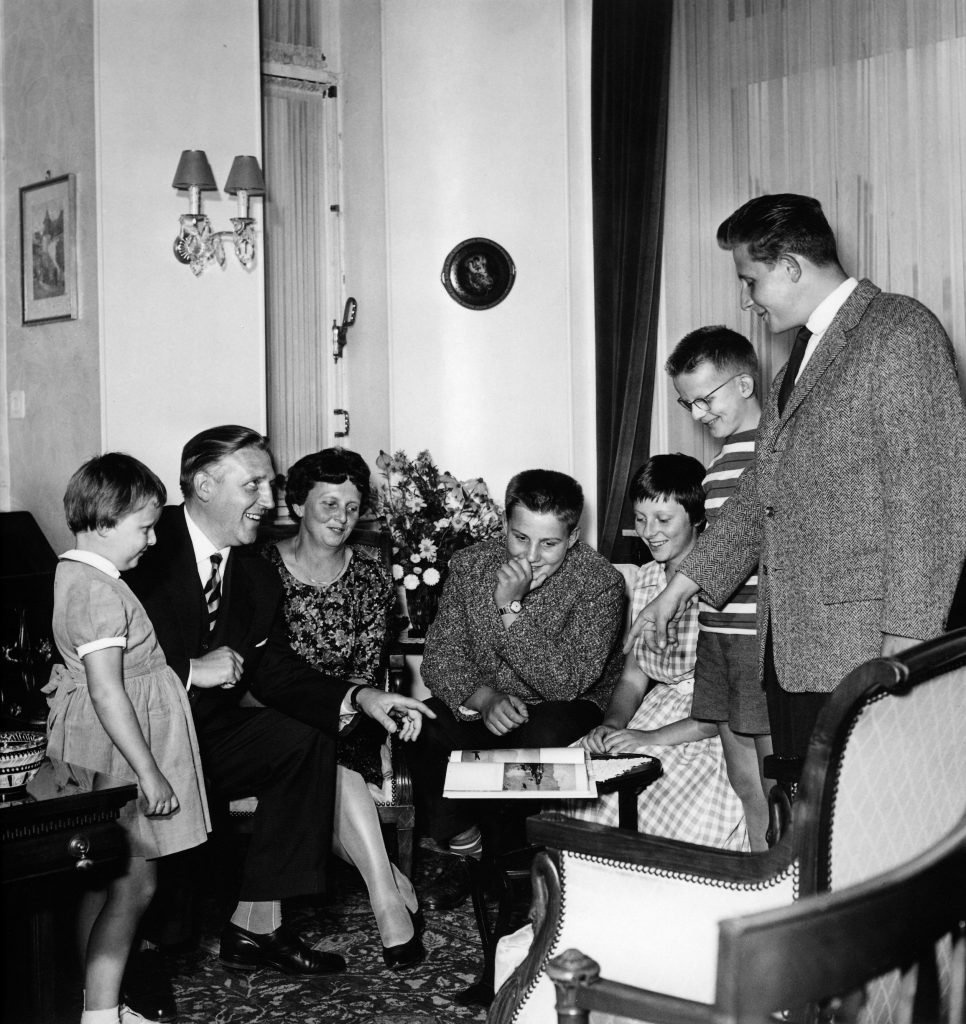Pierre Werner (29.12.1913 – 24.06.2002)
Pierre Werner
The Man Behind the European Monetary Integration
“Inherently attached to the European idea—and what Luxembourger wouldn’t be?—I believe that during my career I remained equidistant from Eurosceptics and pro-Europeans. It might be said that a measured, constructive optimism was my most valuable contribution to European progress.“
Pierre Werner: Itinéraires luxembourgeois et européens : Evolutions et souvenirs: 1945-1985. Editions Saint-Paul :Luxembourg. Tome II, p.171
Pierre Werner, a European Vocation
Pierre Werner was an economist and a lawyer, a politician and a diplomat, a leading player in the building of a united Europe and, in particular, monetary integration. He was actively involved in building the Luxembourg we see today, a figure in academic circles, at the forefront of economic, European and trans-Atlantic networks and a militant Catholic intellectual — in short, a man of many parts whose life spanned the 20th century. Pierre Werner was born of Luxembourgish parents in Saint-André near Lille, France, on 29 December 1913.
Pierre Werner, an European vocation. Biographical documentary (language: French). © University of Luxembourg, 2020
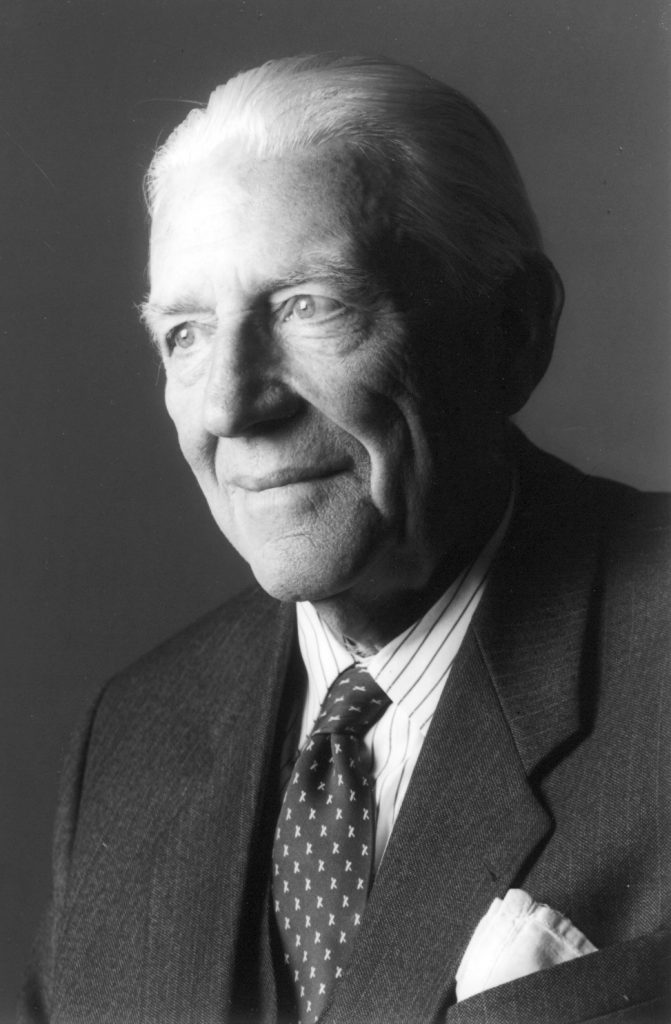
If, after the Second World War, Joseph Bech assured the Grand Duchy a real presence on the international scene, Pierre Werner made European integration the central axis of Luxembourg policy, with an original method based on three pillars: anticipation – innovation – consensus. In the wake of his predecessor, he worked for the organisation of an autonomous diplomatic service based on national intellectual elites. Brought to act in Luxembourgish and European at the same time, it influences major historical events. The merger of the ECSC, Euratom and EEC executives (1965) and the consecration of Luxembourg as the capital of the community institutions, the development of the Kirchberg plateau (a major asset in the battle for seats), the Luxembourg compromise which resolves the “crisis of the empty chair ”and unlocks the process of European integration (1966), are among the outcomes where his contribution was decisive.
Above all, there is the Werner Report (1970) which foreshadows EMU in every detail and which enshrines Pierre Werner as “architect of the euro”. Since then, the euro has resolutely carried a Luxembourgish imprint. Because, it is Jacques Santer, President of the European Commission (1995-1999) who officiated his accession on December 31, 1998 in Luxembourg, and it is Jean-Claude Juncker, the first leader of the Eurogroup (2005-2013) and the last President of the European Commission (2014-2019) has watched over monetary Europe in crisis. It should be noted that with Gaston Thorn (1981-1985) – who in 1975 chaired the thirtieth General Assembly of the United Nations – Luxembourg found itself three times at the head of the Community executive. Continuity in European leadership today constitutes one of the great strengths of the Grand Duchy.
His wife Henriette Pescatore, together with their five children (Marie-Anne, Jean, Charles, Henri, and Elisabeth), provided invaluable support for Pierre Werner throughout his lengthy career. With discretion and efficiency, she was closely involved throughout her life in a number of causes that were particularly important to her, including the provision of schooling for the children of Luxembourg’s fairground workers and, alongside the famous banker Edmond Israel, encouraging multicultural, ecumenical and inter-religious dialogue between Jews and Christians.
An Exceptional Life
Minister of State, Prime Minister and Minister of Finance for several decades, this determined Catholic intellectual and democrat was one of the few European statesmen to survive the 20th century.
Entering politics at the dawn of the 1950s and driven by a humanism deeply rooted in tradition and by a visionary spirit, he was able to lead Luxembourg society towards greater freedom, prosperity and sharing, while opening up to his country new Horizons. Economic expansion, the promotion of the Grand Duchy to the rank of international financial centre, the emergence of the satellite project and the rise of the audiovisual sector, the foundations of the Economic and Monetary Union (EMU), the culture of social consultation and consensus, linguistic law and trilingualism as the basis of national identity and bulwark against all forms of intolerance and xenophobia are some of the initiatives that he has transmitted to his followers. Because, with rigor and perseverance, he has always given shape to his ideas, being a source of inspiration for new generations.

A Family Album
